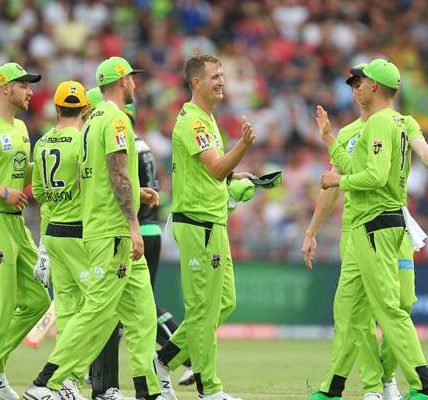Overseas influence on Premier League a major factor behind its success

Ninety-nine percent of the innovations you see in the Premier League come from abroad: Michael Owen
If you are a Liverpool fan, you must be proud of your team’s “Gegenpressing” style of play. Whereas, on the other hand, your current rivals enjoy the “Pass the ball, play the ball” style. What made these big English clubs, who once relied on long balls; adopt these different and eye-catching styles of football? What was that one thing, which changed the nature of the Premier League? The answer is simple – The introduction and engagement of foreign managers and the players.
The Premier League was started in 1992. On its first weekend, only 11 foreign players started in the whole division. Many teams never opted for any foreign player and played with all English squads. But just over seven years later, on the Boxing Day of 1999, Chelsea did the unthinkable. They fielded an all foreign starting XI in their 2-1 victory against Southampton. Chelsea’s manager, meanwhile, was Italian Gianluca Vialli.
Foreign players and the Premier League’s rise to prominence
The sudden introduction of foreign players, more than any other single factor, changed English football. The introduction of Italian, French and Dutch players, in particular, throughout the 1990s enabled English football to embrace different roles, positions and styles. Managers were encouraged to think outside the boxy traditional 4–4–2 formations. The introduction of continental number 10s had provided more attacking flair. However, teams were now evolving statistically all over the pitch.
Certain countries simply produced an entirely different type of player in particular positions. For example, Brazil was renowned for their attack-minded full-backs, who were dynamic in overlapping at the flanks. The best examples of elegant centre-backs in the 1990s, too, were foreign. These centre-backs were also capable of playing in midfield and stormed forward into attack when required. It was a delight to witness the tremendous composure in possession, shuffling past a challenge and playing a one-two.
Gullit’s lasting impact on the Premier League
But the best example of a foreign import offering something completely new was the Dutchman Ruud Gullit. Gullit is unquestionably one of the greatest players of his generation, having won the Ballon d’Or in 1987. He further captained the Netherlands to European Championship glory the following year. Gullit marked the first established superstar to join the Premier League when he signed for Chelsea in 1995. The footballer was an incredibly versatile player, comfortable operating in defence, midfield or attack.
While that’s not entirely unusual for a Dutchman, considering the Netherlands’ love for total football that redefined tactical responsibilities, few were truly masters of every position like Gullit. He started his Chelsea career in the sweeper role, but his technically and tactically limited teammates struggled to comprehend his attacking instincts. “Ruud Gullit brought skills taken for granted in Holland and Italy to England, where the radar-controlled pass has yet to see off the longbow,” said a Guardian report.
“There were moments when Gullit laid the ball off at angles his new teammates didn’t realise existed. He has come to English football as a sweeper, but this is plainly not what he is about.”
Gullit leads Chelsea to their first major trophy in 26 years
When Chelsea manager Glenn Hoddle left Stamford Bridge to take the England job after Euro 1996, the chairman Ken Bates decided his replacement should be Gullit. The Netherlands footballer became the Premier League’s first foreign manager for a couple of months until Arsene Wenger arrived. Still playing, Gullit made a successful start to his managerial career by guiding Chelsea to an FA Cup triumph in 1997, his first season at the helm.
It was the Blues’ first major trophy in 26 years. Gullit became the first non-British manager to win the FA Cup. Surprisingly, Gates opted to sack him and replace with the Italian Gianluca Vialli. Vialli had been brought from the Serie A, and eventually finished what was started that season by leading Chelsea to the League Cup, the European Cup Winners’ Cup and, a few months later, the European Super Cup.
Arsene Wenger spearheads revolution
But what really began to change perceptions about foreign managers was Arsenal’s appointment of Wenger. Not only did he bring the Gunners success on the pitch, they won the Double in Wenger’s first full season (1997-98). The Frenchman further created a revolution at Highbury in terms of the players’ dietary regimes, lifestyles, fitness programmes and training routines. Wenger’s impact at Arsenal, his ideas on how football should be played made foreign coaches suddenly fashionable in England’s top flight. Gullit was appointed by Newcastle. Spurs took a gamble on Swiss Christian Gross. It was a gamble that never paid off though, and Gross was quickly gone.
Wenger’s Arsenal, who claimed their second Double under the Frenchman after three consecutive second-place finishes and losing two cup finals, went on to retain the FA Cup in 2003. They further claimed a third Premier League title in 2003-04, where the Gunners recorded the first and only unbeaten top-flight campaign. A further FA Cup success in 2005 was followed by losing finals in the Champions League (2006) and League Cup (2007).
One Arsène Wenger. pic.twitter.com/1Up1rsSq7f
— Arsenal (@Arsenal) May 6, 2020
The Rival Trio
However, by now Wenger had two heavyweight contenders for his crown of the most successful overseas manager in English football. Spaniard Rafael Benitez, fresh from a successful spell as Valencia boss was appointed as Liverpool manager in 2004. Portuguese Jose Mourinho arrived at Chelsea after the Champions League triumph with Porto. Mourinho wasted no time in becoming the second foreign manager to lift the Premier League title. Chelsea were crowned champions in 2004-05, won the League Cup and reached the last four of the Champions League. Mourinho then achieved what Wenger had not – he retained the Premier League title in 2005-06. The following season, his side finished runners-up in the League, Champions League semi-finalists and winners of both the League Cup and FA Cup.
Their conquerors in the Champions League, as they’d been two years earlier, were Benitez’s Liverpool. The Spaniard had made the Reds champions of Europe in his first season (2004-05), beating Milan in a dramatic shoot-out after a sensational comeback in open play. They won the Super Cup a few months later and added the FA Cup in 2006. In 2007, Benitez guided Liverpool to another Champions League final, where Milan turned the tables. The following season they were ousted from the semi-final of that competition by Chelsea.
Since three of the Premier League’s ‘Big Four’ have been managed by foreign coaches continuously, there is no doubt that the presence of foreign managers has stimulated and thickened the flow of overseas players into the Premier League. Not least, because the managers concerned inevitably have an extensive first-hand knowledge of the talent available beyond England’s shores.





